6. Sudden Impact (1983)
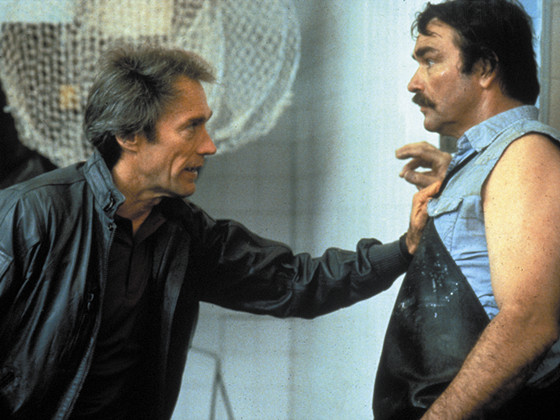
Out of the five Dirty Harry films, this is the only installment in which Clint Eastwood split duties as star and director. While the other sequels are reheated dishes that fail to capture the magnetism of the original film, Sudden Impact unsuspectingly dissects the core of the series, Harry Callahan, and the persona of Eastwood altogether, along with being typically thrilling and action-packed.
The 1983 film follows Dirty Harry’s (Eastwood) continued escapades with crime–pushing his form of justice too far, thus causing him to be sidelined from the force. While on leave, he becomes attracted to a case involving revenge murders and the perpetrator, Jennifer Spencer (Sondra Locke), who killed three men for raping her 10 years prior. This plot that kicks off in the second half (the juxtaposition between the two halves sparks a riveting tonal shift) naturally engages with a dynamic of vengeance and ruthless vigilantism that has been crystalized by the series lead and Eastwood’s screen persona.
Sudden Impact knows its place. Eastwood is not on a quest for definitive answers to the morality of justice and the hypocrisy of punishing a woman for exacting an eye-for-an-eye style of punishment. In one of the most humbling and shocking acts of Eastwood’s long line of meta-reckonings, Spencer’s morally justifiable vengeance makes Dirty Harry’s disregard for the law all the more fraught. The film presents challenging ideas to audiences but leaves the viewer to ponder under their own fruition and focuses on crafting the most exciting shootouts and thrilling stand-offs. Aside from the intriguing textual components, it is difficult not to enjoy Sudden Impact after hearing the iconic “Go ahead, make my day” speech from Inspector Callahan.
7. Pale Rider (1985)
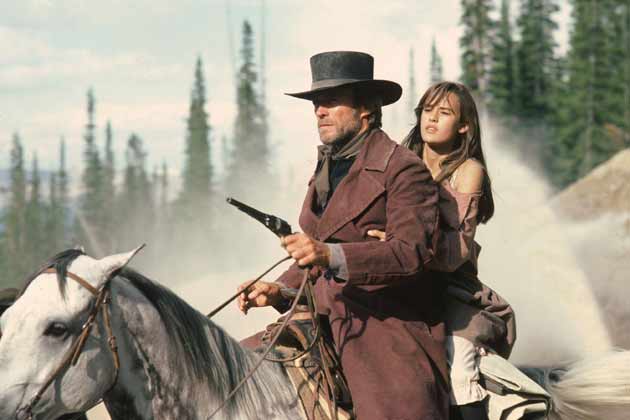
The Western genre was operating like an outlaw in a Clint Eastwood film in the 1980s. Even as they were out of fashion, he used his clout to get back in the saddle with Pale Rider, another Western about a mythical and daunting cowboy who protects good from evil, only this time, evil stems from a sobering fact of life. The film amounted to being the highest-grossing Western of the decade.
In Pale Rider, a quaint village of prospectors is under attack by a group of hooligans hired by a property owner who terrorizes the town into giving up their land. An ominous lone ranger, The Preacher (Eastwood), arrives to protect the town, only to confront a greater attack force once the miners refuse to comply. Similar to High Plains Drifter and The Outlaw Josey Wales, Eastwood embodies the mysterious outlaw vigilante with such graciousness and magnetism. The Preacher’s well-meaning intentions are undermined by his unknowability and manipulation of his supposed biblical powers.
The hazy painterly depiction of the Western landscape helps elevate the twisted spirituality of Pale Rider. The emphasis on the Sacred and Profane in the film’s narrative and visual language is an intersection of Eastwood’s major influences, Sergio Leone and John Ford. Unlike the director’s past and future revisionist pictures, the film is simultaneously romanticizing the Western and confronting the harsh implications of the setting in a modern context. If Pale Rider teaches audiences anything, it’s that the conclusion is the same old song and dance. Violence and retribution are required to stand up for the common folk.
8. White Hunter Black Heart (1990)
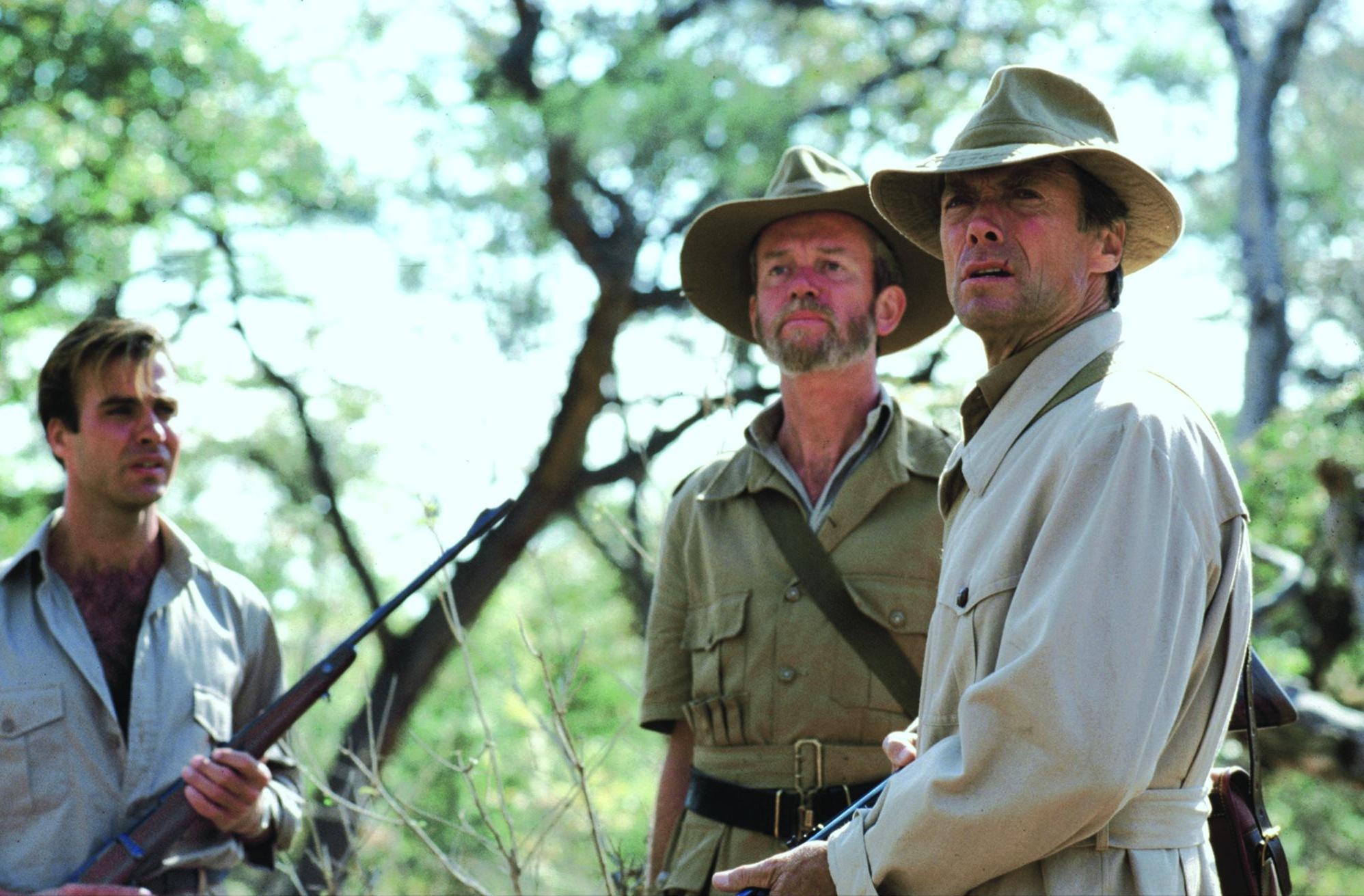
A passion project for Clint Eastwood, in return for making The Rookie, the actor/director explored the fabled tale of a Hollywood director on a quest for hunting a prized elephant. More than any of his films, Eastwood seems noticeably removed from his persona, and instead, searches for reasons behind obsession and desires beyond his purview in White Hunter Black Heart.
In a story believed to be inspired by John Huston on the set of The African Queen, the film follows Hollywood director John Wilson (Eastwood), and his obsession to hunt an elephant in Africa, as he slowly becomes a greater concern to his cast and crew. The film was Eastwood’s poorest performer at the box office. Considering the unglamorous and unsettling nature of the character’s desire and the overall cold tone of the film, this checks out. More than any of his previous and future pictures, White Hunter Black Heart lacks concern for audience comfort. This can hurt the film to a point, as Eastwood struggles to establish momentum early on.
While heavily invested in undermining his iconography, the film is slightly undercooked in showing the self-destruction of the John Huston stand-in, in terms of aggressive confrontations with the figure. Eastwood seems equally sympathetic and scornful of this character, which activates a fascinating dynamic. White Hunter Black Heart manipulates the audience’s rooting interest by presenting John Wilson as a victim of the precarious nature of Hollywood, while at the same time pitting viewers against the director due to his incessant obsession. The film refuses to give into the norms of storytelling and characterization, causing White Hunter Black Heart to be one of Eastwood’s most complex and daring films ever.
9. A Perfect World (1993)
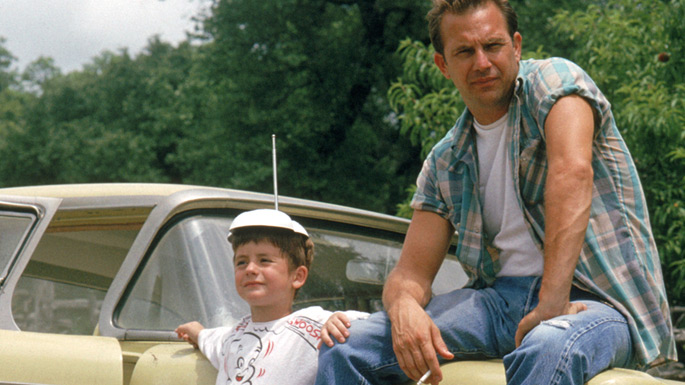
In 1993, Clint Eastwood set his artistic bar to extraordinary heights following the brilliance of his Best Picture-winning Unforgiven. The film perhaps signaled that Eastwood had definitively told his story once and for all. Immediately after his Western swan song, Eastwood directed and starred in A Perfect World, a transcendent tale of broken masculinity and empty fatherhood that ranks among his finest work.
A Perfect World centers around an unlikely friendship between an escaped convict, Butch Haynes (Kevin Costner) and a boy he kidnaps, Phillip (T.J. Lowther), a timid child brought up in a Jehovah’s Witness family, as Texas Ranger Red Garnett (Eastwood) pursues him as he tries to grapple with the situation. Acting as a predecessor to No Country for Old Men in its depiction of an aging lawman struggling to identify the gray line of crime, the film is the most emotionally complex film Eastwood has ever made.
The Garnett character, despite all of the resources and wits and his disposal, is incapable of rescuing the boy or capturing the convict. At the end of the day, he doesn’t understand that both Butch and Philip are lost souls suppressed by their environment, which is partially attributed to their lack of paternal oversight. Where Unforgiven gives the Eastwood persona a destructive and harrowing conclusion, Garnett is left without a proper resolution, as justice or vengeance is inapplicable for the circumstances in A Perfect World.
Eastwood’s meditation on masculinity and violence is channeled through Butch’s complex as a surrogate father to Philip. He conveys this by teaching him how to hold a gun and aiding him in robbing a local shop. While not a Western by the standard understanding of one, Eastwood uses the open fields and desert in A Perfect World to explore the characters’ desire for personal freedom. The film, while confined to its grounded setting and raw handling of the human state, is philosophically and spiritually profound.
10. Absolute Power (1997)
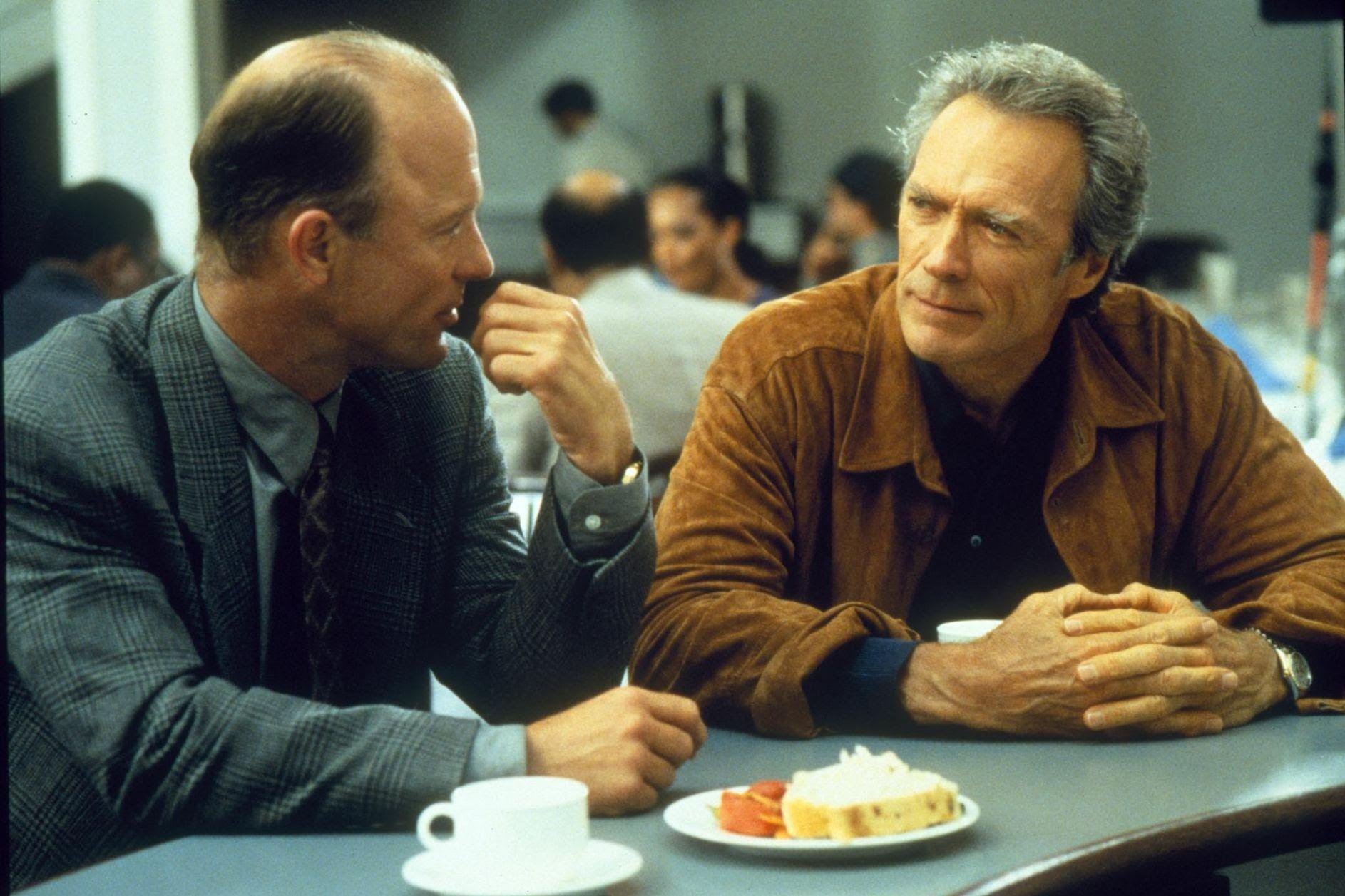
Clint Eastwood’s 1990s was quite prolific. He expanded his artistic outreach beyond Westerns and cop thrillers. In 1997, Eastwood went back to a familiar well in Absolute Power, a pulpy, elevated trashy crime thriller with an impressive cast. The film, while not an overwhelmingly rich text or philosophical exploration, is the kind of sturdy and reliable film that Eastwood raised with a standard of excellence.
Based upon a novel of the same name by David Baldacci, Absolute Power tracks a veteran thief, Luther Whitney (Eastwood), who witnesses President Alan Richmond (Gene Hackman) engage in adultery, which leads to a string of murders in a bid to cover-up the affair. Eastwood delivers on all the primal levels of entertainment and thrills that the film promises. It is straightforward, down-the-middle quality filmmaking. If anything, Absolute Power opened a window to more pulpy noir-like mysteries that the actor/director could have tackled prior. There is just enough Hitchcockian slickness and simmering intensity on the screen to stand out from the pack.
The eclectic group of great stars and refined character actors, including Hackman, Ed Harris, Laura Linney, Scott Glenn, Dennis Haysbert, and Judy Davis, are all committed to the text that is admirably devoted to its origins as an airport paperback. The film had impeccable timing upon release, as suddenly, this genre film was prescient in relation to the Clinton-Lewinsky scandal that would soon be unearthed. Certain narrative beats operate like Eastwood karaoke, in particular, the fascination of an aging outlaw figure on “one last job.” Either way, Absolute Power is as average as average gets on paper, but thanks to the familiar and satisfying Eastwood touch, this film instantaneously feels more important and worthwhile.